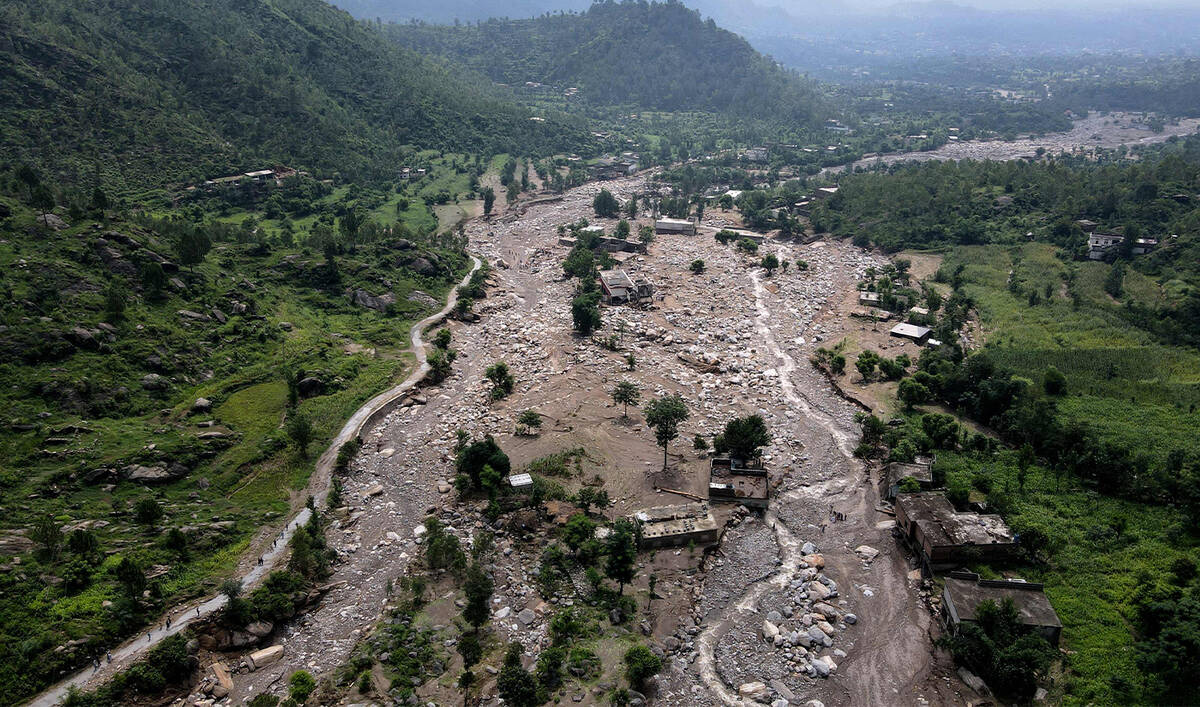ISLAMABAD: A Swedish business delegation will soon be visiting PakistanŌĆÖs commercial capital of Karachi to explore investment opportunities in the garment sector, the Pakistani commerce ministry said on Monday.
The statement came after Swedish Ambassador to Pakistan Alexandra Berg von LindeŌĆÖs meeting with Commerce Minister Jam Kamal Khan at his office in Islamabad to discuss bilateral trade, investment opportunities and areas of mutual collaboration.
Pakistan, currently bolstered by a $7 billion International Monetary Fund (IMF) program, has been making efforts to boost trade and foreign investment as it treads a long path to sustainable economic growth.
The commerce ministry said the ambassador acknowledged PakistanŌĆÖs reputation in textile exports as both sides reviewed avenues to strengthen economic cooperation, noting that Swedish buyers consider Pakistani products among the best in the world.
ŌĆ£Swedish small and medium-sized enterprises are eager to explore opportunities in Pakistan, particularly in the garment sector,ŌĆØ the ministry said, citing SwedenŌĆÖs envoy. ŌĆ£A Swedish business delegation is expected to visit Karachi soon to interact with local manufacturers and explore export opportunities.ŌĆØ
Pakistan and Sweden enjoy longstanding and cordial relations. Sweden was the first Scandinavian country to establish diplomatic relations with Pakistan in 1949. Over the years, the two sides have developed multifaceted and fruitful cooperation especially in trade, economy, education, culture and people-to-people exchanges.
The bilateral trade volume between Pakistan and Sweden touched $288.8 million in fiscal year 2023-2024, with PakistanŌĆÖs exports to Sweden amounting to $149.4 million and imports to $129.4 million, according to the Pakistani foreign office.
During the meeting, Khan highlighted PakistanŌĆÖs potential in information technology (IT) and technical education, mining, surgical goods and sports equipment, noting that Swedish companies could greatly benefit from investing in these sectors.
For the first time in PakistanŌĆÖs history, the government plans to gradually reduce import tariffs, which will be brought down to 15ŌĆō20 percent within the next five years, according to the minister. The policy aims to support exports while allowing imports of quality products not available domestically, enabling value addition before re-export.
Khan further underscored that more than 40 Swedish companies, including global brands such as H&M and IKEA, are already sourcing from Pakistan and invited greater Swedish investment in renewable energy, sustainable manufacturing, IT and infrastructure, encouraging SwedenŌĆÖs participation in upcoming trade events such as Food and Agriculture Exhibition in Pakistan in Nov. 2025.
ŌĆ£Both sides identified mining, renewable energy, green technologies, vocational training, and skill development as areas for future collaboration,ŌĆØ KhanŌĆÖs ministry said.
ŌĆ£The minister emphasized PakistanŌĆÖs large pool of skilled youth, especially in health care, where Pakistani professionals could help meet shortages in Europe, including nursing staff.ŌĆØ


















